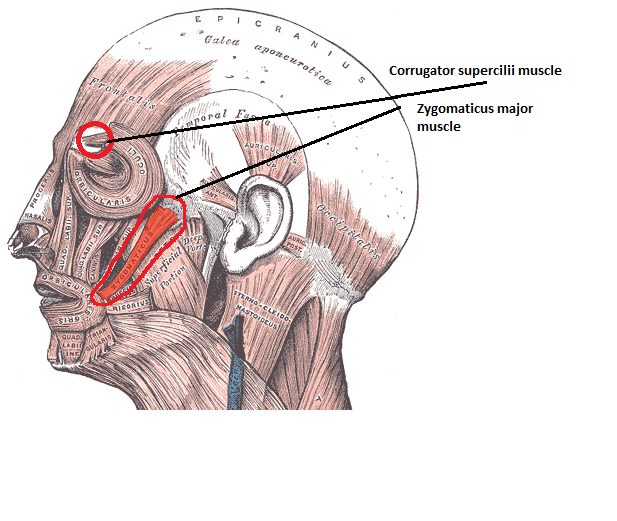|
Fanya Montalvo
Fanya S. Montalvo (born in Monterrey, Mexico) Received the Ph.D. in ''Computer and Information Science'' at the University of Massachusetts Amherst in 1976. Her dissertation was entitled ''Aftereffects, Adaptation, and Plasticity: A Neural Model for Tunable Feature Space.'' She was advised by Michael Anthony Arbib. Montalvo has been a research scientist at Lawrence Berkeley Labs, HP, MIT, and Digital Equipment Corporation. Montalvo is a leader in the field oInconsistency Robustnesscurrently serving on the governing Board of thInternational Society for Inconsistency Robustness According to Rosalind Picard, she is involved in considerations within emotional computing. ee: Affective Computing ">Affective_Computing.html" ;"title="ee: Affective Computing">ee: Affective Computing She is known for having coined the term "AI-complete"John C. Mallery. "Thinking About Foreign Policy: Finding an Appropriate Role for Artificially Intelligent Computers" Master's thesis, M.I.T. Political ... [...More Info...] [...Related Items...] OR: [Wikipedia] [Google] [Baidu] |
Rosalind Picard
Rosalind Wright Picard (born May 17, 1962) is an American scholar and inventor who is Professor of Media Arts and Sciences at MIT, founder and director of the Affective Computing Research Group at the MIT Media Lab, and co-founder of the startups Affectiva and Empatica. She has received many recognitions for her research and inventions. In 2005, she was named a Fellow of the Institute of Electrical and Electronics Engineers for contributions to image and video analysis and affective computing. In 2019 she received one of the highest professional honors accorded an engineer, election to the National Academy of Engineering for her contributions on affective computing and wearable computing. In 2021 she was recognized as a Fellow of the ACM for contributions to physiological signal sensing for individual health and wellbeing. In 2021 she was elected to the National Academy of Inventors, which recognizes outstanding inventions that have made a tangible impact on quality of life, e ... [...More Info...] [...Related Items...] OR: [Wikipedia] [Google] [Baidu] |
Affective Computing
Affective computing is the study and development of systems and devices that can recognize, interpret, process, and simulate human affects. It is an interdisciplinary field spanning computer science, psychology, and cognitive science. While some core ideas in the field may be traced as far back as to early philosophical inquiries into emotion, the more modern branch of computer science originated with Rosalind Picard's 1995 paper on affective computing and her book ''Affective Computing'' published by MIT Press. One of the motivations for the research is the ability to give machines emotional intelligence, including to simulate empathy. The machine should interpret the emotional state of humans and adapt its behavior to them, giving an appropriate response to those emotions. Areas Detecting and recognizing emotional information Detecting emotional information usually begins with passive sensors that capture data about the user's physical state or behavior without interpreting ... [...More Info...] [...Related Items...] OR: [Wikipedia] [Google] [Baidu] |
AI-complete
In the field of artificial intelligence, the most difficult problems are informally known as AI-complete or AI-hard, implying that the difficulty of these computational problems, assuming intelligence is computational, is equivalent to that of solving the central artificial intelligence problem—making computers as intelligent as people, or strong AI.Shapiro, Stuart C. (1992)Artificial IntelligenceIn Stuart C. Shapiro (Ed.), ''Encyclopedia of Artificial Intelligence'' (Second Edition, pp. 54–57). New York: John Wiley. (Section 4 is on "AI-Complete Tasks".) To call a problem AI-complete reflects an attitude that it would not be solved by a simple specific algorithm. AI-complete problems are hypothesised to include computer vision, natural language understanding, and dealing with unexpected circumstances while solving any real-world problem. Currently, AI-complete problems cannot be solved with modern computer technology alone, but would also require human computation. T ... [...More Info...] [...Related Items...] OR: [Wikipedia] [Google] [Baidu] |
Artificial General Intelligence
Artificial general intelligence (AGI) is the ability of an intelligent agent to understand or learn any intellectual task that a human being can. It is a primary goal of some artificial intelligence research and a common topic in science fiction and futures studies. AGI is also called strong AI,: Kurzweil describes strong AI as "machine intelligence with the full range of human intelligence." full AI, or general intelligent action, although some academic sources reserve the term "strong AI" for computer programs that experience sentience or consciousness. Strong AI contrasts with ''weak AI'' (or ''narrow AI''), which is not intended to have general cognitive abilities; rather, weak AI is any program that is designed to solve exactly one problem. (Academic sources reserve "weak AI" for programs that do not experience consciousness or do not have a mind in the same sense people do.) A 2020 survey identified 72 active AGI R&D projects spread across 37 countries. Characteristics ... [...More Info...] [...Related Items...] OR: [Wikipedia] [Google] [Baidu] |
Living People
Related categories * :Year of birth missing (living people) / :Year of birth unknown * :Date of birth missing (living people) / :Date of birth unknown * :Place of birth missing (living people) / :Place of birth unknown * :Year of death missing / :Year of death unknown * :Date of death missing / :Date of death unknown * :Place of death missing / :Place of death unknown * :Missing middle or first names See also * :Dead people * :Template:L, which generates this category or death years, and birth year and sort keys. : {{DEFAULTSORT:Living people 21st-century people People by status ... [...More Info...] [...Related Items...] OR: [Wikipedia] [Google] [Baidu] |
